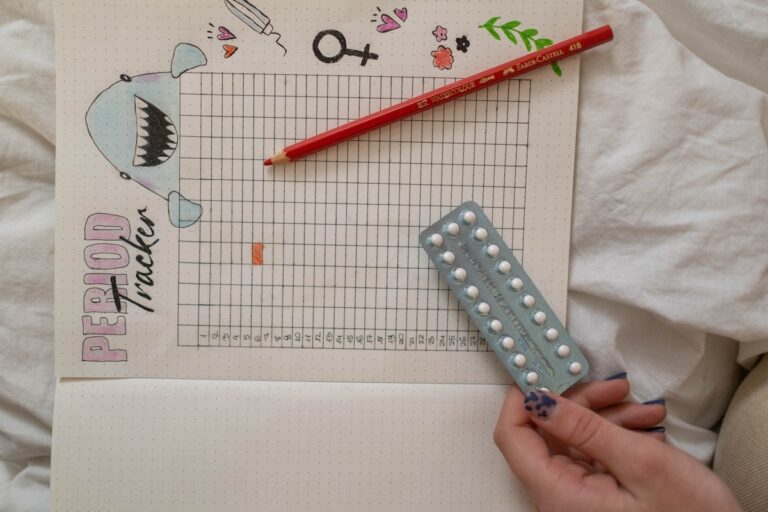Every woman’s menstrual cycle is different. But on average, it takes 28 days for one of your ovaries to release an egg and prepare the uterus for pregnancy. If the egg doesn’t get fertilized, your body will shed the uterine lining through your vagina, causing bleeding.
Many women wonder if sexual activity changes their menstrual cycle. It can, but not in the ways you might think.
1. Physical Activity
Regular physical activity is an important part of healthy living, and exercise can help improve mood, reduce menstrual cramps, and boost energy levels. However, many women struggle to stick with their workout routines when they get their period. They often avoid exercising at all or push themselves too hard, but this can lead to fatigue and other symptoms that are bad for their health.
Studies have shown that different phases of the menstrual cycle affect the body’s ability to recover from exercise, and this varies for everyone. It’s best to stick with light exercises during the follicular phase and increase the intensity of your workouts as you move into the luteal phase. This will prevent overworking your body and make the transition into menstrual flow smoother.
In addition, strenuous workouts can lead to pain and cramps for some people during their period. If you’re feeling uncomfortable, try changing up your workouts to include gentle stretching or balancing exercises like yoga and tai chi.
However, it is important to note that if you’re suddenly spotting during your workouts, this is not a good sign and should be seen by a doctor. This may be a sign of an underlying issue such as hypothyroidism, and it can affect your hormone levels which can impact your menstrual cycle. A doctor will be able to prescribe medication and recommend a safe way to return to your normal exercise routine.
2. Stress
It’s not exactly a secret that stress can have a huge impact on your menstrual cycle, but did you know that sex can also affect it? Extreme amounts of stress can change your normal menstrual cycle by affecting the part of the brain in charge of regulating hormones (known as the hypothalamus). This can cause you to have longer or shorter periods than usual, but it’s usually only temporary. Once you are able to manage your stress levels, your menstrual cycle should go back to normal.
However, sexual arousal can increase libido and lead to orgasms, which in turn, can improve cramping caused by your period. In fact, sexual arousal leads to the production of oxytocin which is known to be a natural pain killer. So while sex won’t put an end to your monthly menstruation, it may help with the symptoms that come along with it.
Sexual arousal can also lead to ovulation which is a fertile window that happens around the time of your period. Pregnancy from heterosexual sex is uncommon but it can occur. This is why it’s so important to use contraception in this situation. But, other than this scenario, sex won’t really impact your menstrual cycle in any other way. This is because the length of your period is determined by the chemical changes that take place in your hypothalamus and ovaries.
3. Hormones
The menstrual cycle is controlled by female hormones that cause regular bleeding (periods). Your period lasts for about three to seven days and is a mixture of blood, mucus and tissue from the lining of your uterus. It is normal to have pain or tenderness in the tummy, breasts and lower back during your period. However, some women have severe symptoms that affect their daily lives. This is classed as premenstrual syndrome and it includes tiredness, mood swings, abdominal cramping and painful breasts.
Each month, your hormones make the lining of your uterus thicken so that if a pregnancy would occur, an egg can implant in it. Hormones also cause your ovaries to release an egg (ovulation). This moves down the fallopian tubes to wait for sperm. If sperm don’t fertilise that egg, or pregnancy isn’t possible, then your hormones cause the lining of your uterus to break down and shed through your vagina (menstruation).
The exact pattern of this cycle is different for every woman. But it usually starts with menstrual bleeding on day 1 of the cycle. The follicular phase then begins. It is triggered by the complex interaction of a group of hormones from your brain and ovaries, including luteinizing hormone, follicle stimulating hormone and female sex hormones estrogen and progesterone. When the ovulation doesn’t occur, falling levels of progesterone trigger the shedding of the endometrial lining, and the cycle begins again.
4. Diet
The menstrual cycle is a monthly rhythm of hormone changes that prepare the uterus for pregnancy. Each menstrual cycle consists of a menstrual period, follicular phase and ovulation. During the menstrual period, the lining of the uterus (endometrium) is shed causing bleeding. During the follicular phase, an egg develops and is released from one of the ovaries. During the ovulation phase, levels of estrogen and progesterone peak. If an egg is not fertilized, progesterone levels fall, causing the endometrium to thin again, which results in a menstrual period.
Each menstrual cycle lasts 28 days on average, but can range from 21 to 35 days. If you are having periods that are less than 21 or more than 35 days apart, if you bleed between your periods (also known as spotting), or if the spotting is heavier than normal, talk to a health professional.
Eating a balanced diet can help you balance your menstrual cycle and feel your best. It’s important to eat a variety of foods that contain nutrients including vitamins, minerals and protein. Try to eat whole grains, beans and legumes, nuts and seeds and fruits and vegetables. Exercise is also important for women, especially during the follicular phase of the menstrual cycle. This is the time to work on cardiovascular and strength-training exercises, such as running, swimming and group fitness classes.
See Also:



